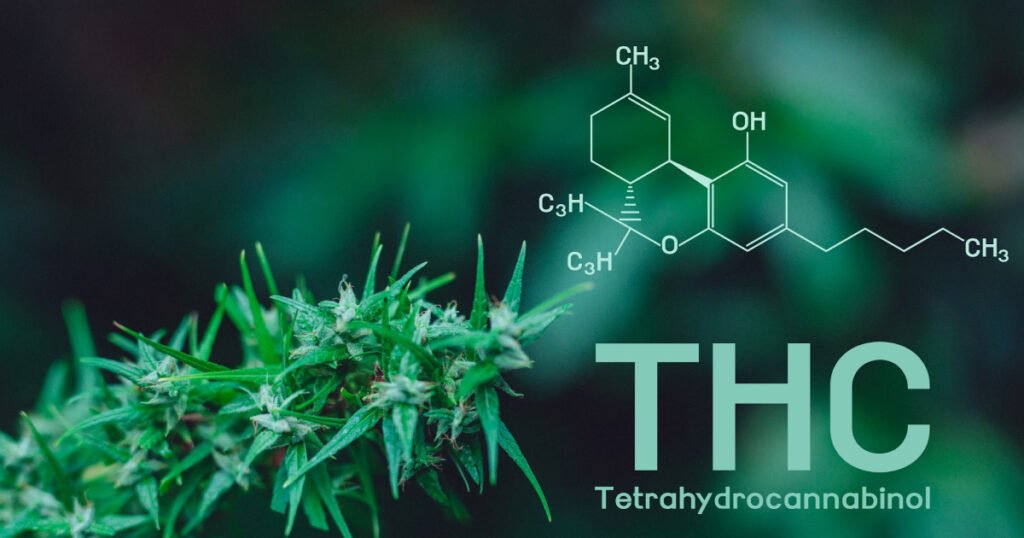- 2.1 Addressing Concerns and Risks
- 2.2 Responsible Use and Professional Guidance
- 2.3 Combining THC with Other Therapies
- 2.4 The Importance of Legalization for Medical Research
Delta 9 is a key component of cannabis that has garnered significant attention in recent years. Beyond its recreational uses, researchers have been investigating THC’s ability to manage anxiety. Which is a prevalent mental health concern affecting millions worldwide. In this article, we explore the potential of THC as a treatment for anxiety disorders while considering its legal status and medical implications.
Therapeutic Potential of Delta 9-Tetrahydrocannabinol (THC) in Managing Anxiety
THC and Anxiety
THC is known for its psychoactive effects that interact with the body’s endocannabinoid system. That has been influencing various physiological processes. Early studies suggest that THC can affect neurotransmitters linked to anxiety regulation, such as serotonin and GABA. It can potentially provide relief from anxiety symptoms.
The Legal Landscape and Medical Research
Despite the growing interest in delta 9 THC’s therapeutic applications its legal status remains a significant barrier in many regions. The stigma surrounding cannabis and its recreational use has hindered comprehensive research. However, some countries and states have started to embrace the medicinal potential of THC that are allowing for limited medical use and research.
Current Research Findings
Preliminary studies have shown promising results regarding THC’s efficacy in managing anxiety disorders. Some individuals reported reduced anxiety levels after using THC-based products. However, research remains inconclusive and more rigorous clinical trials are required to establish a definitive link between THC and anxiety treatment.
Potential Benefits of THC for Anxiety
THC’s anxiolytic properties have the potential to be a game-changer for individuals struggling with anxiety disorders. Unlike traditional medications THC may offer a more holistic approach to anxiety management, addressing both psychological and physical symptoms. Moreover, its relaxing effects may improve sleep patterns and also benefit those with anxiety-related insomnia.
Addressing Concerns and Risks
While THC shows promise as an anxiety treatment concerns persist about potential side effects and dependency issues. Users may experience short-term memory impairment, decreased motor skills, and altered cognitive functions. Regular and excessive THC use may lead to addiction and exacerbate anxiety symptoms in the long run.
Responsible Use and Professional Guidance
Considering the potential risks of using THC for anxiety management is essential. Individuals should seek professional guidance and adhere to recommended dosages. Consulting healthcare professionals can help ensure safe usage and mitigate potential adverse effects.
Combining THC with Other Therapies
Using THC as a complementary therapy alongside other evidence-based treatments can enhance its potential benefits. Cognitive-behavioral therapy (CBT) and mindfulness techniques may yield better outcomes for anxiety management.
The Importance of Legalization for Medical Research
The current legal restrictions on THC hinder comprehensive research on its therapeutic potential. Advocating for the legalization of medical cannabis can pave the way for more extensive studies. It also enables scientists to uncover the full range of benefits and risks associated with THC in anxiety treatment.
Conclusion
Delta 9-Tetrahydrocannabinol (THC) holds promise as an alternative approach to managing anxiety disorders. While initial research is more robust on studies that are necessary to fully understand THC’s effects and its role in anxiety treatment. Advocating for the legalization of medical cannabis and responsible usage can open the door to a more comprehensive exploration of THC’s therapeutic potential ultimately benefiting individuals worldwide seeking relief from anxiety-related challenges.
